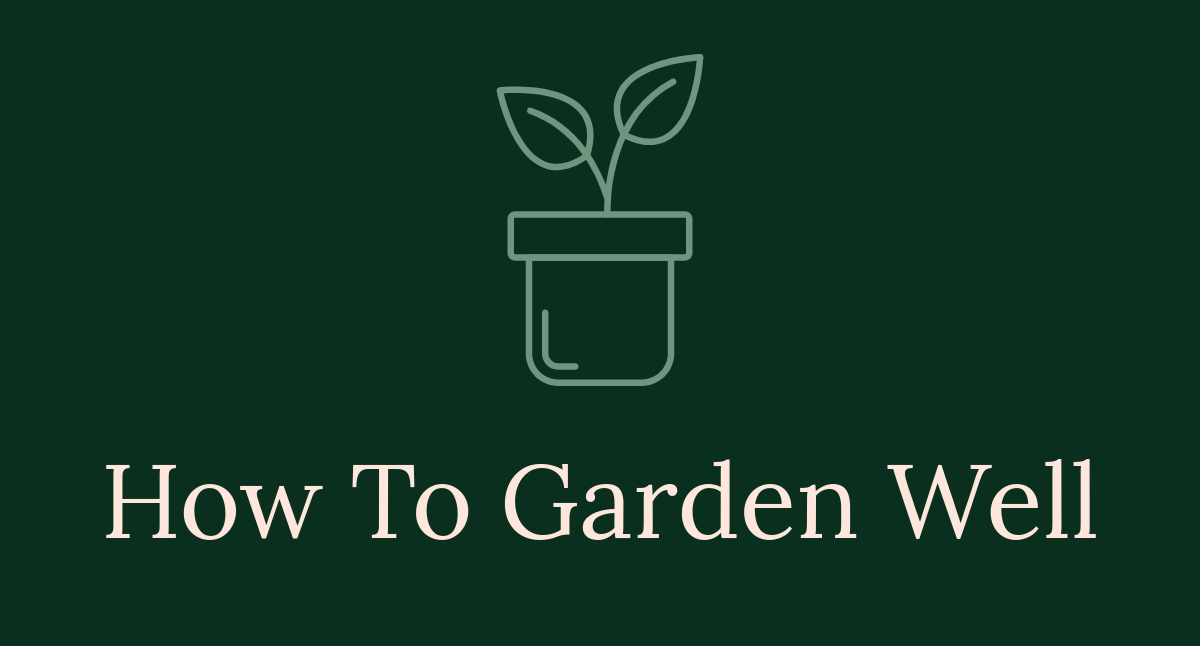
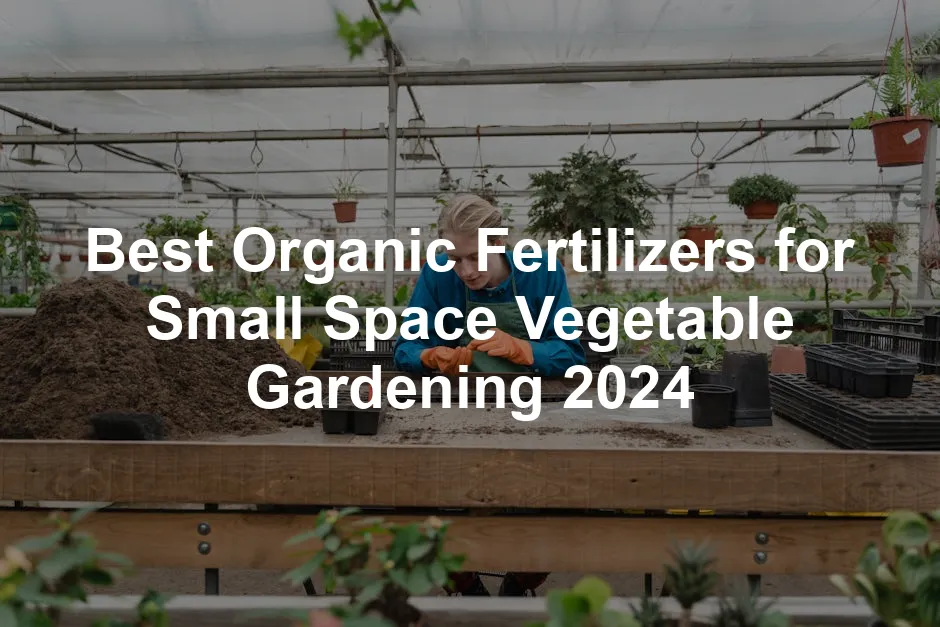
Best Organic Fertilizers for Small Space Vegetable Gardening 2024
Introduction
Organic fertilizers are essential for small space vegetable gardens. They boost plant health and promote sustainability. In 2024, options for organic fertilizers are growing, offering exciting choices. These fertilizers enrich soil and support thriving gardens. With the right nutrients, you can enjoy fresh, healthy vegetables all season long.
Speaking of boosting your garden’s health, why not give it a kick with Bone Meal Fertilizer? It’s like giving your plants a protein shake, packed with phosphorus for strong roots and flourishing flowers!
Summary and Overview
This article will highlight the best organic fertilizers for small space vegetable gardening in 2024. We will cover compost, worm castings, fish emulsion, bone meal, and seaweed extract. Each type of fertilizer plays a crucial role in enhancing soil health and providing essential nutrients. Organic fertilizers not only benefit plants but also improve soil structure and support beneficial microbes. Making informed choices about these fertilizers will help you create a lush, productive garden in limited spaces. Let’s dive into the world of organic gardening and discover how to maximize your small garden’s potential.
And while you’re at it, consider using Seaweed Extract Fertilizer. It’s like a spa day for your plants, loaded with micronutrients that help them resist stress and grow stronger!
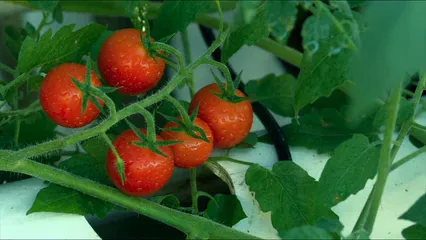
Why Choose Organic Fertilizers?
Environmental Benefits
Choosing organic fertilizers promotes environmental sustainability. These fertilizers break down slowly, reducing nutrient runoff that harms local waterways. By using organic options, you improve soil structure and moisture retention. This helps prevent erosion and enhances the soil’s ability to support plant life. Organic fertilizers also encourage beneficial microorganisms, which play a vital role in nutrient cycling. Studies show that organic practices can reduce nutrient runoff by up to 50%. This makes organic fertilizers a smart choice for eco-friendly gardening.
If you’re looking to kick up your soil health, grab a Organic Compost. It’s like a gourmet meal for your plants, adding vital nutrients and improving soil structure!

Health Advantages
Organic fertilizers offer significant health benefits for gardeners and consumers. They contain no synthetic chemicals, ensuring that your vegetables remain chemical-free. This means healthier produce for you and your family. Additionally, organic gardening promotes biodiversity, creating a balanced ecosystem in your garden. This rich environment attracts beneficial insects and microorganisms that contribute to plant health. By choosing organic, you’re not just nurturing your plants; you’re also fostering a healthier planet.
Now, if you’re looking for a great way to give your garden a nitrogen boost, consider adding Alfalfa Meal. It’s like a green smoothie for your soil, rich in nitrogen and trace minerals!
Health Advantages
Using organic fertilizers offers numerous health benefits. First and foremost, these fertilizers ensure that your vegetables are free from synthetic chemicals. This absence of harmful substances means you can enjoy chemical-free gardening, providing healthier produce for you and your loved ones. Imagine biting into a juicy tomato, knowing it’s grown without harmful additives!
Moreover, organic gardening promotes biodiversity. By using organic fertilizers, you contribute to creating a balanced ecosystem. This rich environment attracts beneficial insects and microorganisms, which help maintain plant health. Healthy ecosystems support not only your garden but also wildlife and the surrounding environment. This interconnectedness enhances your garden’s vitality, making it more resilient to pests and diseases.
Additionally, organic fertilizers improve soil health over time. They enrich the soil with nutrients that enhance plant growth. This means your garden can thrive while supporting the ecosystem around it. In embracing organic practices, you’re making a choice that benefits both your health and the environment.
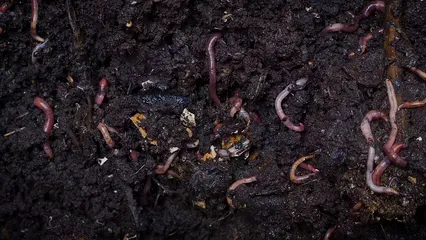
Bone Meal: Phosphorus Powerhouse
Bone meal is a fantastic addition to your garden. It’s rich in phosphorus and calcium. These nutrients are crucial for strong root development and better flowering. When you use bone meal, you support your plants’ growth right from the start.
To apply bone meal, sprinkle it around the base of your plants. You can also mix it into the planting holes before putting seedlings in. For best results, use it at the beginning of the growing season. Bone meal works slowly, providing nutrients over time. This slow release means your plants benefit throughout their growing cycle.
And don’t forget about enhancing your plants’ growth with Coffee Grounds for Gardening. They’re a great source of nitrogen and can help improve your soil structure while keeping your plants happy!

Seaweed Extract: Micronutrient Marvel
Seaweed extract is another excellent organic fertilizer. It’s packed with vital micronutrients that boost plant health. These nutrients help plants resist stress and grow stronger. Additionally, seaweed contains natural growth hormones that promote healthy development.
When applying seaweed extract, follow the manufacturer’s instructions. You can use it as a liquid fertilizer or a foliar spray. Applying it during early growth and flowering stages maximizes its benefits. Regular applications can lead to vibrant plants and increased yields.

Additional Organic Fertilizers
There are several other organic fertilizers you can consider. Alfalfa meal is rich in nitrogen and trace minerals. It also contains triacontanol, a natural growth stimulant that enhances plant growth. Coffee grounds provide a nitrogen boost and improve soil structure. Simply mix them into the soil or sprinkle them around plants.
Compost tea is another fantastic option. It’s made by steeping compost in water, creating a nutrient-rich liquid. Apply it every few weeks to nourish your plants. Each of these fertilizers has unique benefits, so feel free to experiment and find what works best for your small space garden.
Looking for an efficient way to collect your compost? Check out this Compost Bin. It’s a game changer for turning kitchen scraps into garden gold!
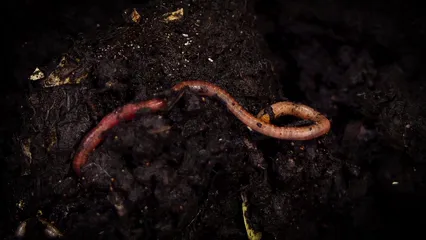
Compost is an essential component of organic gardening. For more information on how to effectively use compost, check out this Guide to composting in small backyard spaces.
Application Techniques
Applying homemade fertilizers can be simple and effective. Start by ensuring your fertilizers are well-mixed for even distribution. For compost tea, steep compost in water for a few days. Strain the mixture before use. This nutrient-rich liquid can be applied directly to the soil or as a foliar spray.
When using solid fertilizers like bone meal or worm castings, sprinkle them around your plants. Gently work them into the topsoil. This helps the nutrients penetrate the soil.
Dilution is key for liquids. Follow package instructions for ratios. Generally, a 1:10 ratio of fertilizer to water works well. This prevents nutrient burn and allows for gradual absorption.
Timing is essential too. Apply fertilizers in the morning or late afternoon. This helps avoid evaporation and plant stress from the heat. For optimal results, fertilize when plants are actively growing, which is usually in the spring and early summer.
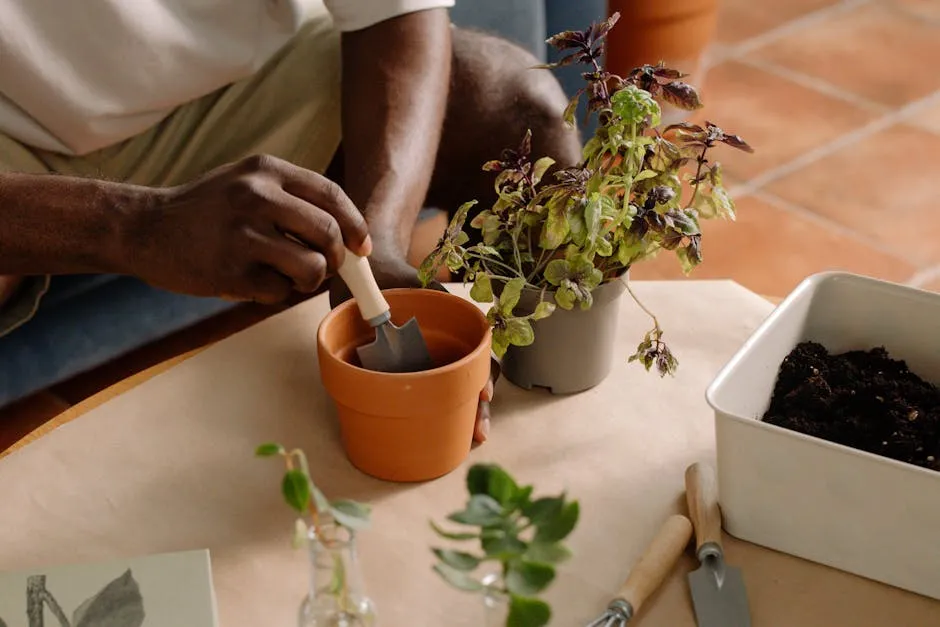
Integrating Organic Fertilizers with Other Gardening Practices
Companion Planting
Companion planting is a great way to maximize the benefits of organic fertilizers. Certain plants work well together, enhancing each other’s growth. For example, tomatoes and basil thrive when planted side by side. The basil can repel pests that affect tomatoes, reducing the need for additional treatments.
Using organic fertilizers boosts this interaction. Fertilizers provide essential nutrients that support both plants, leading to healthier growth. This method not only improves yields but can also enhance flavor. By promoting a diverse ecosystem, you create a more resilient garden that naturally balances pests and diseases.
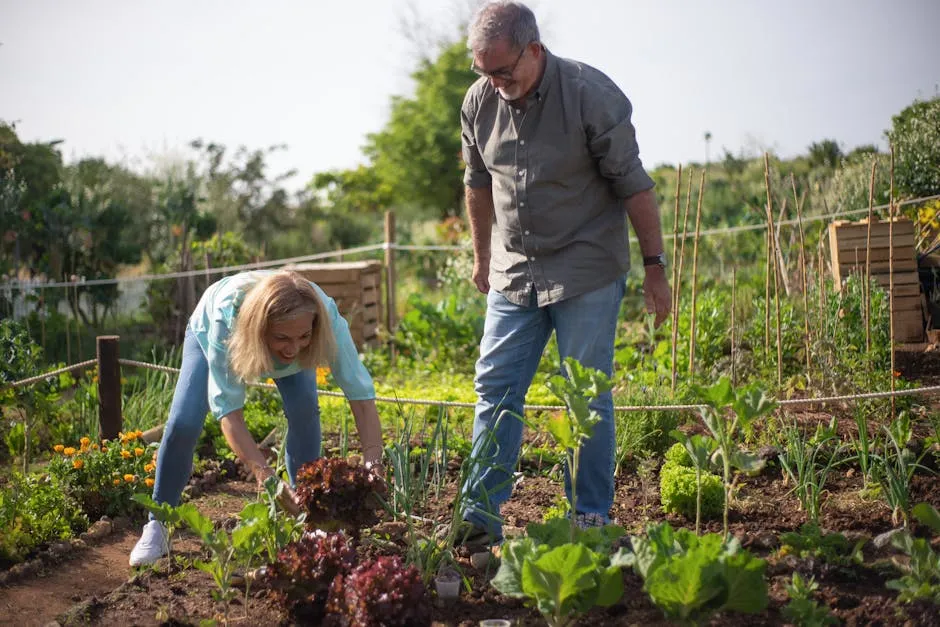
For more insights on how companion planting can boost your garden’s yield, explore our Companion planting strategies for increased yield.
Crop Rotation
Crop rotation is vital for maintaining soil health. Different plants have varied nutrient needs. By rotating crops, you prevent nutrient depletion in the soil. For instance, legumes like beans fix nitrogen, enriching the soil for future crops.
Understanding plant families helps in rotation planning. Nightshades (tomatoes, peppers) should not follow one another. Instead, alternate them with leafy greens or root vegetables. This practice minimizes disease buildup and optimizes nutrient use.

To learn more about how crop rotation can improve your vegetable garden’s health, read our article on understanding crop rotation for healthier vegetables.
Mulching and Moisture Retention
Mulching is an excellent complement to organic fertilizer use. It helps retain moisture, keeping your plants hydrated longer. Organic mulches, such as straw or shredded leaves, break down over time, adding nutrients to the soil.
Different types of mulch offer unique benefits. Wood chips provide a slow-release source of carbon, enriching soil structure. Grass clippings add nitrogen, while leaves improve soil texture.
Applying a 2-3 inch layer of mulch around plants can suppress weeds, reducing competition for nutrients. This simple practice not only conserves moisture but also enhances overall soil health, creating a thriving environment for your vegetables.
And if you’re looking for some great organic mulch options, check out these Organic Mulch choices that will make your garden happy!
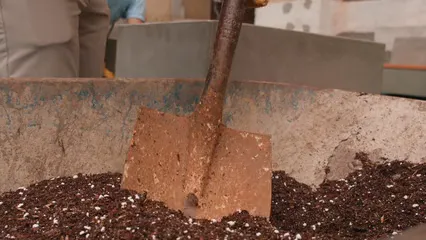
The Future of Organic Fertilizers
The world of organic fertilizers is evolving rapidly. In 2024, we see exciting trends reshaping how we nourish our gardens. One significant trend is the rise of personalized blends. Thanks to technology, gardeners can now tailor fertilizers to meet specific plant needs. Soil testing kits and apps provide real-time data, helping you understand exactly what your plants require.
Another emerging trend is a focus on sustainability. More gardeners are seeking eco-friendly practices that minimize their environmental impact. Organic fertilizers, derived from natural sources, reduce chemical runoff. This not only protects local waterways but also enhances soil health. Sustainable options like composting and using plant-based fertilizers are gaining popularity.
Moreover, companies are investing in research to create innovative organic fertilizers. These advancements promise improved nutrient delivery and longer-lasting effects. As we embrace these trends, we can look forward to producing healthier plants while caring for our planet.

And speaking of sustainability, consider investing in a Soil Testing Kit. It’s the perfect tool to help you understand your garden’s needs and optimize your organic practices!

Conclusion
Choosing the right organic fertilizers for small space gardening is crucial. They enrich the soil and support healthy plant growth. Experiment with various options discussed in this post. Each type offers unique benefits that can enhance your garden’s productivity. Embracing organic gardening nourishes not just plants but also the environment. Your journey towards a thriving garden starts today!
FAQs
How often should I apply organic fertilizers?
The frequency of applying organic fertilizers varies based on type. For slow-release options, apply once or twice a season. Liquid fertilizers can be used every 2-4 weeks, especially during active growth periods.
Are organic fertilizers safe for pets and children?
Most organic fertilizers are safe for pets and children. However, it’s best to keep them away from freshly fertilized areas until the product has settled into the soil.
Can I use organic fertilizers for container gardening?
Absolutely! Organic fertilizers work well in container gardening. They provide essential nutrients, helping your potted plants thrive, especially since nutrients can deplete quickly in containers.
How long do organic fertilizers take to work?
Organic fertilizers release nutrients more slowly than synthetic options. You may start seeing results in a few weeks, while some benefits might take longer to manifest.
Can I mix different types of organic fertilizers?
Yes, mixing different organic fertilizers can create a balanced nutrient profile. Just be cautious not to over-fertilize, as this can harm plants.
What are the signs that my plants need fertilizer?
Signs of nutrient deficiency include yellowing leaves, stunted growth, and poor flowering. If you notice these symptoms, it might be time to apply some fertilizer.
How can I improve soil health in small space gardens?
To enhance soil health, regularly add organic matter like compost. Practice crop rotation and consider cover crops. These methods create a thriving ecosystem that supports plant growth and resilience.
Please let us know what you think about our content by leaving a comment down below!
Thank you for reading till here 🙂
All images from Pexels
